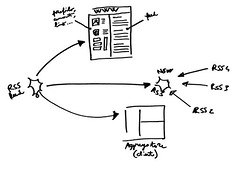
Blogging offers writers great rewards. We get to share our words with others. We educate and entertain. If we’re really lucky, our blogs generate income or interest from book agents. To do any of this, however, you need readers, and in the early days of any blog, readers are hard to come by.
Patience, Grasshopper . . .
In the early days of my blog I had exactly ten subscribers, and one of them was my mother (Pro tip: never blog about your childhood if your mother can comment on your blog). As the months passed, I saw only minor increases in readership and traffic. No one, it seemed, wanted to read my work.
I could have given up: on several occasions I almost did. Fortunately I’d read an article which claimed it took over 100 posts before a blog begins seeing real increases in traffic. At two blog entries a week, it can take up to two years before a blog starts attracting regular readers.
This delay between launch and results explains why so many blogs fail. We start blogging with enthusiasm. Personal bloggers usually love their chosen topic, whether their topic’s parenting, freshwater crayfish breeding or a SES Application. Their enthusiasm shows in the quality of their writing and the number of posts they make a week.
Or at least, you can see the love and enthusiasm for a few months. After the first months, writers begin to question what they’re doing. No one’s reading their work, which they may spend hours of precious time writing. Disillusionment sets in, new posts appear less and less often, and eventually the blog dies.
Drumming up Readership
Understanding it takes time to create a successful blog helps keep writers focused during the lonely early life of a blog. If you’re producing quality content, eventually people will find you. It helps if you understand a little about search engine optimization and keywords, but really, the key to blogging success remains high-quality, informative content updated regularly.
This doesn’t mean, however, you can’t push the blog along a little. If you’re interested in your blog’s subject matter, chances are good you’re already involved in related forums. Add your blog URL to your message board signature. If a topic related to one of your posts, offer a link to the post.
The key here is to be helpful, not spammy. Only offer links when they’re relevant. Instead, get out into the online community. Take part in discussions, offer help, and stay pleasant and polite: few people build successful blogs by being complete trolls. Well actually, I imagine quite a few do, but do you really want to be part of that club?
Do the same with social media. Get involved in relevant groups, forge a reputation in the community, and offer blog links when appropriate. Over time, people learn you’re an expert in your field (or at least a talented amateur) and are more likely to seek out your blog independently.
Michelle is an aspiring writer with a passion for blogging. She enjoys writing about a vast variety of topics and loves that blogging gives her the opportunity to publicly voice her thoughts and share advice with an unlimited audience.


Leave a Reply